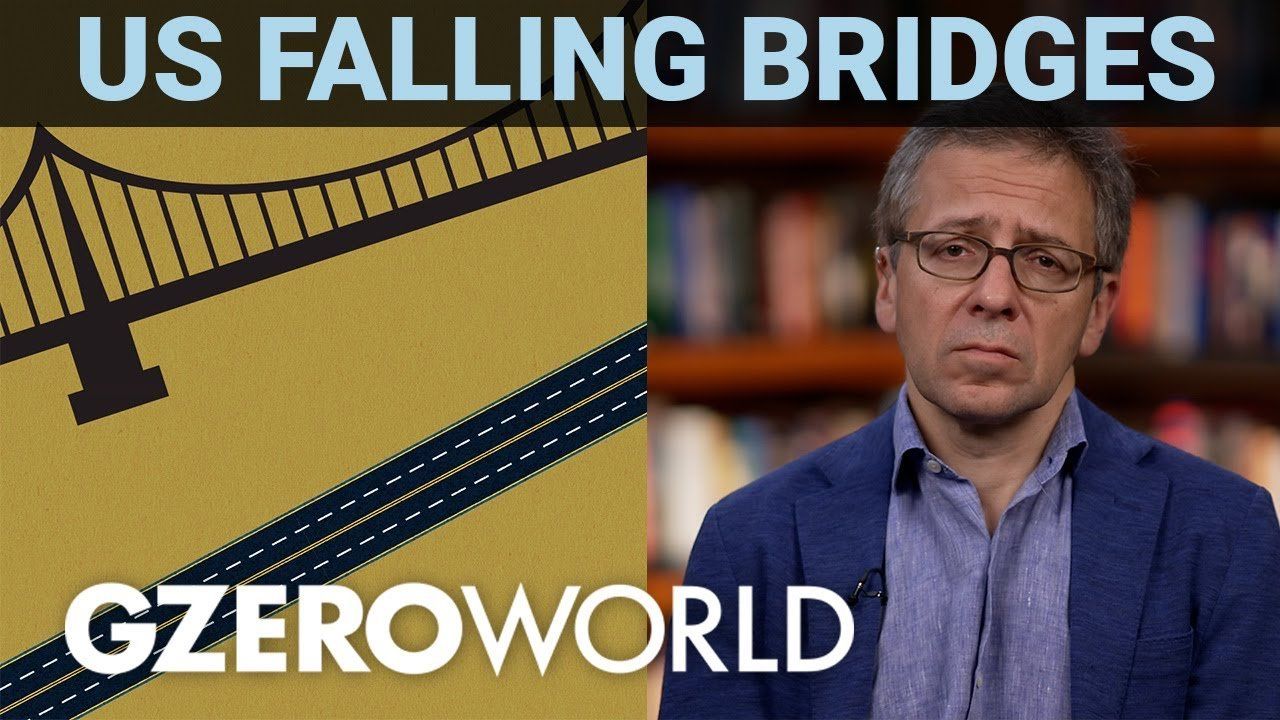
At 6:05pm on a sweltering August evening in 2007, rush hour traffic was crawling across Minneapolis’ I-35 bridge. Then, the bridge began to shake.
Thirteen people died and 140 more were injured when Minnesota’s third-busiest bridge collapsed, plunging vehicles ten stories down into the rushing Mississippi river and leaving one school bus with 63 children teetering against a guardrail. An NTSB investigation later attributed the collapse to 300 tons of construction materials that had been placed on a 40-year-old design flaw in the bridge’s original construction. But while the flaw had gone undetected for decades, inspectors HAD rated the bridge in poor condition for 17 straight years.
The truth is that bridges in America fall down all the time, Ian Bremmer explains on GZERO World.
In fact, since the 2007 Minneapolis disaster, at least 21 US bridges have partially or entirely collapsed. A 2022 report found that 43,000 US bridges are QUOTE “structurally deficient.” The report also found that those same bridges are crossed 168 million times a day. At the current rate, it would take 30 years to fix all of the country’s structurally deficient bridges. Do you feel lucky?
Globally, of course, the number of faulty bridges is much higher, but at least here in the United States, things may be starting to change. On November 6, 2021, Congress passed the Biden administration’s $1.2 trillion dollar infrastructure bill, which includes $550 billion dollars for America’s roads, bridges, mass transit, rail, airports, and ports.
Secretary Pete Buttigieg has called it QUOTE "the single largest dedicated bridge investment since the construction of the Interstate highway system." But as we all know, allocating the money is only half the battle. Making sure it’s spent correctly is where the...rubber meets the road.